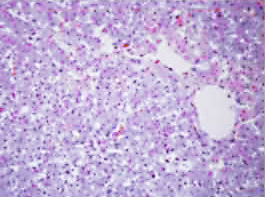Tag: Urology
-

Combination Therapy May Improve Outcomes for Advanced Bladder Cancer
Patients with immunotherapy-resistant bladder cancer who received a novel combination treatment demonstrated improved response to treatment, according to a recent study published in Nature Medicine.
-

Dysfunctional Enzyme May Lead to Liver Disease
A dysfunctional enzyme may lead to nonalcoholic fatty liver disease in mice, according to a study published in Science Advances.
-

New Biomarker May Predict Treatment Response in Bladder Cancer
Patients with metastatic urothelial cancer and increased expression of the NECTIN4 gene had a dramatically better response to antibody treatment than patients with reduced gene expression, according to recent findings published in the Journal of Clinical Oncology.
-

Examining Infection Rates in Prostate Cancer Biopsies
Two methods of prostate cancer biopsy demonstrated similar, minimal rates of infection in patients with prostate cancer, according to a recent Northwestern Medicine study published in the journal European Urology.
-

Outsmarting Chemo-Resistant Ovarian Cancer
Northwestern Medicine scientists have discovered the Achilles heel of chemotherapy-resistant ovarian cancer — its hunger for cholesterol — and how to sneakily use that to destroy it.
-

Genes May Predict Treatment Resistance in Prostate Cancer
Increased expression of specific genes in prostate cancer patients may predict whether or not the cancer will respond well to hormone therapy, according to a new study published in Nature Communications.
-

Mutations in 11 Genes Linked to Deadly Prostate Cancer
Scientists have linked mutations in 11 genes with aggressive prostate cancer, according to the largest-ever study of its kind recently published in JAMA Oncology.
-

Improving Immune Responses in Prostate Cancer
Men with high-risk prostate cancer who received immunotherapy treatment with enoblituzumab in the weeks leading up to surgery had favorable rates of disease remission and tumor downgrading after surgery, according to a recent study published in Nature Medicine.
-

Direct-to-Consumer Online Platforms Expand Access, but Often Fail to Convey Risks of Testosterone Therapy
Direct-to-consumer platforms for testosterone therapy don’t always provide care in concordance with professional guidelines, according to a recent Northwestern Medicine study.
-

Novel Treatment Effective for Bladder Cancer, Study Shows in Mice
An epigenetics drug currently being used for the treatment of blood cancers and rare sarcomas can stop the growth of bladder cancer by activating the immune system, according to a new study.






